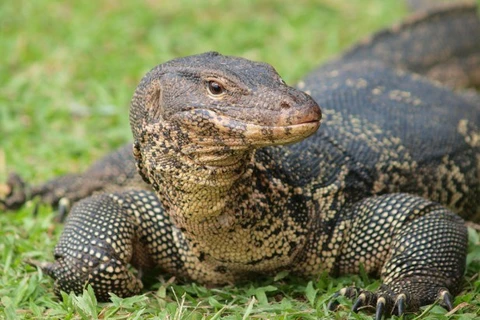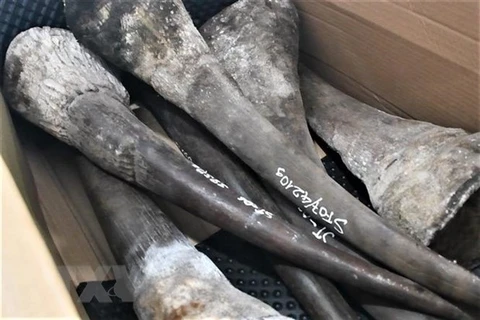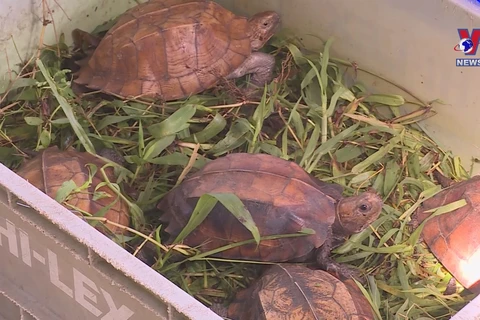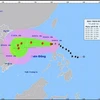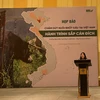Hanoi (VNA) – The People and Nature Reconciliation (PanNature) on August 24 organised a seminar looking back on the captivity, trading, rescue and conservation of tigers in Vietnam after the recent seizure of 17 tigers in Nghe An province.
The tigers were found being raised illegally in the basements of two families in the central province on August 4.
Deputy Director of the Vietnam CITES Management Authority Vuong Tien Manh said that Nghe An has been considered a hot spot for illegal wildlife captivity for years, especially in Yen Thanh, Dien Chau and Quynh Luu districts. Notably, the smuggling of wild animals, especially tigers, is increasingly complicated.
According to statistics, Vietnam currently has more than 300 tigers legally kept in captivity in farms, captivity facilities and households. However, the actual number of tigers being kept in captivity in the country may be much larger than the statistics, including those raised illegally.
Notably, numerous studies have shown that tiger breeding facilities are intimately involved in smuggling networks. The United Nations Office on Drugs and Crime (UNODC)'s Wildlife Crime Report 2020 and the Wildlife Trade Monitoring Network (TRAFFIC) Research Report 2019 also showed that the risk of captive tigers entering the illegal market is completely real.
Director of the Education for Nature Vietnam (ENV) Bui Thi Ha stated that Vietnam has already had strict sentences for tiger-related crimes, especially since the Penal Code came into effect.
She suggested the country invest more time and resources in dealing with leaders of tiger smuggling rings, while stressing the importance of news agencies and press outlets to disseminate relevant laws.
Participants also proposed intensifying law enforcement, stepping up inter-sectoral coordination, and closely monitoring captivity facilities to effectively manage the captivity of tigers./.
The tigers were found being raised illegally in the basements of two families in the central province on August 4.
Deputy Director of the Vietnam CITES Management Authority Vuong Tien Manh said that Nghe An has been considered a hot spot for illegal wildlife captivity for years, especially in Yen Thanh, Dien Chau and Quynh Luu districts. Notably, the smuggling of wild animals, especially tigers, is increasingly complicated.
According to statistics, Vietnam currently has more than 300 tigers legally kept in captivity in farms, captivity facilities and households. However, the actual number of tigers being kept in captivity in the country may be much larger than the statistics, including those raised illegally.
Notably, numerous studies have shown that tiger breeding facilities are intimately involved in smuggling networks. The United Nations Office on Drugs and Crime (UNODC)'s Wildlife Crime Report 2020 and the Wildlife Trade Monitoring Network (TRAFFIC) Research Report 2019 also showed that the risk of captive tigers entering the illegal market is completely real.
Director of the Education for Nature Vietnam (ENV) Bui Thi Ha stated that Vietnam has already had strict sentences for tiger-related crimes, especially since the Penal Code came into effect.
She suggested the country invest more time and resources in dealing with leaders of tiger smuggling rings, while stressing the importance of news agencies and press outlets to disseminate relevant laws.
Participants also proposed intensifying law enforcement, stepping up inter-sectoral coordination, and closely monitoring captivity facilities to effectively manage the captivity of tigers./.
VNA

